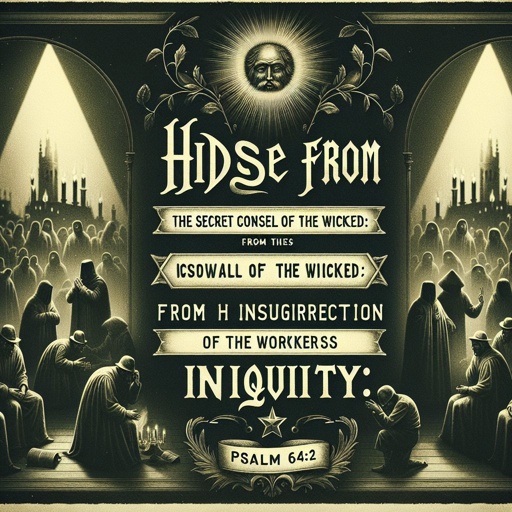Isaiah 64 Artwork
"Oh that thou wouldest rend the heavens, that thou wouldest come down, that the mountains might flow down at thy presence," - Isaiah 64:1
Explore Isaiah 64 through paintings, pictures, drawings, digital art, illustrations, wallpapers, photos, prints & more.

Isaiah 64:10 - "Thy holy cities are a wilderness, Zion is a wilderness, Jerusalem a desolation."

Isaiah 64:12 - "Wilt thou refrain thyself for these things, O LORD? wilt thou hold thy peace, and afflict us very sore?"

Isaiah 64:1 - "Oh that thou wouldest rend the heavens, that thou wouldest come down, that the mountains might flow down at thy presence,"

Isaiah 64:8 - "But now, O LORD, thou art our father; we are the clay, and thou our potter; and we all are the work of thy hand."

Isaiah 64:3 - "When thou didst terrible things which we looked not for, thou camest down, the mountains flowed down at thy presence."

Isaiah 64:11 - "Our holy and our beautiful house, where our fathers praised thee, is burned up with fire: and all our pleasant things are laid waste."

Isaiah 64:2 - "As when the melting fire burneth, the fire causeth the waters to boil, to make thy name known to thine adversaries, that the nations may tremble at thy presence!"

Isaiah 64:9 - "¶ Be not wroth very sore, O LORD, neither remember iniquity for ever: behold, see, we beseech thee, we are all thy people."

Isaiah 64:4 - "For since the beginning of the world men have not heard, nor perceived by the ear, neither hath the eye seen, O God, beside thee, what he hath prepared for him that waiteth for him."

Isaiah 64:6 - "But we are all as an unclean thing, and all our righteousnesses are as filthy rags; and we all do fade as a leaf; and our iniquities, like the wind, have taken us away."

Isaiah 64:5 - "Thou meetest him that rejoiceth and worketh righteousness, those that remember thee in thy ways: behold, thou art wroth; for we have sinned: in those is continuance, and we shall be saved."

Isaiah 64:7 - "And there is none that calleth upon thy name, that stirreth up himself to take hold of thee: for thou hast hid thy face from us, and hast consumed us, because of our iniquities."

Numbers 7:64 - "One kid of the goats for a sin offering:"

1 Chronicles 6:64 - "And the children of Israel gave to the Levites these cities with their suburbs."

Psalms 78:64 - "Their priests fell by the sword; and their widows made no lamentation."

Psalms 64:4 - "That they may shoot in secret at the perfect: suddenly do they shoot at him, and fear not."

Psalms 64:7 - "But God shall shoot at them with an arrow; suddenly shall they be wounded."

Ezra 2:64 - "¶ The whole congregation together was forty and two thousand three hundred and threescore,"

Lamentations 3:64 - "¶ Render unto them a recompence, O LORD, according to the work of their hands."

Psalms 119:64 - "The earth, O LORD, is full of thy mercy: teach me thy statutes."

Psalms 64:2 - "Hide me from the secret counsel of the wicked; from the insurrection of the workers of iniquity:"

Mark 14:64 - "Ye have heard the blasphemy: what think ye? And they all condemned him to be guilty of death."

Psalms 64:10 - "The righteous shall be glad in the LORD, and shall trust in him; and all the upright in heart shall glory."

Psalms 64:1 - "Hear my voice, O God, in my prayer: preserve my life from fear of the enemy."

Luke 1:64 - "And his mouth was opened immediately, and his tongue loosed, and he spake, and praised God."

Psalms 64:5 - "They encourage themselves in an evil matter: they commune of laying snares privily; they say, Who shall see them?"

Psalms 64:9 - "And all men shall fear, and shall declare the work of God; for they shall wisely consider of his doing."

Genesis 24:64 - "And Rebekah lifted up her eyes, and when she saw Isaac, she lighted off the camel."

Psalms 64:3 - "Who whet their tongue like a sword, and bend their bows to shoot their arrows, even bitter words:"

Galatians 6:4